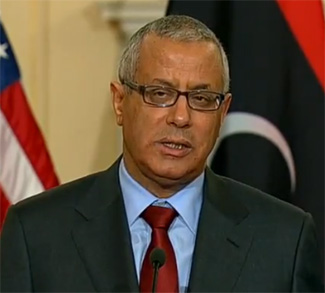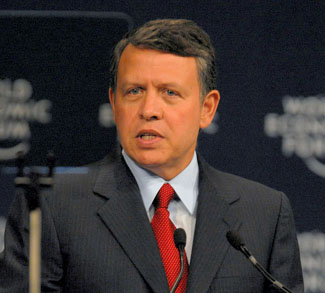The ‘Jamahiriya’, the odd republic that former Libyan leader Mu’ammar al-Qadhafi created in accordance to a ‘model’ he conceived and expressed in his seminal “Green Book” – based on his Third Universal Theory, functioning as a kind of Constitution for Libya – was at best described as a confused mishmash of Chinese socialism with Islamic coloring. It was by all means a mess, but it worked in the sense that it kept Libya united, thanks to the authority and fear mongering exercised by its creator. Now, over three years after Qadhafi’s demise, Libya has plunged back into chaos. Not a week goes by without news that an ambassador, (the latest being the Jordanian one), or a foreign security official (the latest being one guarding the US embassy) has been kidnapped.
Last March, in the wake of a no-confidence vote, Prime Minister Ali Zeidan resigned for “the good of the nation” and to ensure that Libyans “no longer fight each other.” The resignation came in the wake of an embarrassing security breach involving a North Korean oil tanker, loaded with oil, which was stolen by a rebel militia. Libya’s oil production fell to 250,000 barrels per day (bpd) – a significant decline considering that during the Qadhafi regime, production was nearly 1.5 million bpd and destined for even higher volumes. Libyan MP’s have denounced the oil crisis that erupted last summer, when a group of armed militants led by Ibrahim Jathran took control of the four ports of the Gulf of Sirte, from which 80% of Libyan crude is exported. Sometime after the crisis broke out, the former prime minister left the country on a plane to Europe.




